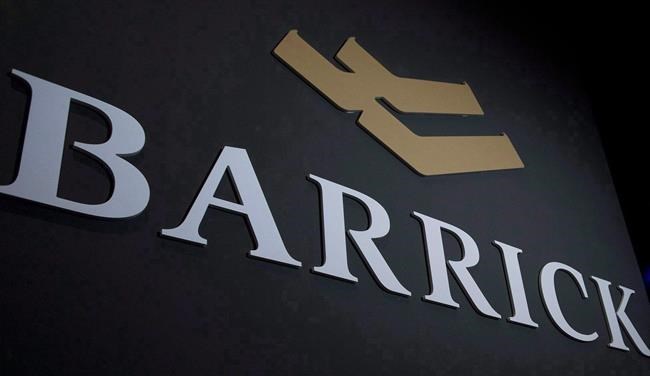TORONTO — A group of more than 20 Tanzanians and their family members have filed a lawsuit against Barrick Gold Corp., alleging they or their loved ones were beaten, shot at or killed by police at one of the company's mines in the African country.
The plaintiffs in the suit filed against the Toronto-based gold miner on Wednesday at the Ontario Superior Court of Justice say five people were killed by the police, five tortured by them and at least another five were shot at by the authorities, resulting in serious injuries.
"We alleged it is Barrick and especially the senior management and board in Toronto that are responsible for the human rights and security policy at the North Mara mind and the hope is to pursue this case and get some accountability for the violence that has occurred against these community members and their families," said Joe Fiorante of CFM Lawyers, who is representing the plaintiffs.
Barrick took operational control of the North Mara Mine in 2019, using a security strategy that involved agreements with the Tanzanian police to have heavily armed police sent to deal with locals entering waste rock areas, said a statement of claim filed by Fiorante and Cory Wanless of Waddell Phillips.
They say Barrick should have known the police had a long history of using "excessive force" because several civil society groups have reported that at least 77 people have been killed by police or security around the mine since 2006.
Barrick spokesperson Kathy du Plessis confirmed the company received the statement of claim on Wednesday, but said it was "riddled with inaccuracies."
"It also attempts to advance claims against Barrick Gold Corporation in Ontario based on alleged actions of the Tanzanian police, even though Barrick exercises no control or direction of any nature over the Tanzanian police," she wrote in an email.
"We intend to vigorously defend against these allegations in the appropriate forum."
Barrick, which the statement of claim calls the second largest gold mining company in the world, has owned the mine that is at the heart of the allegations through subsidiaries since 2016.
The statement of claim said it is located in the middle of seven villages and in one of the poorest regions of Tanzania, where the Indigenous Kurya people used to rely on small-scale, non-industrial mining until many lost their primary income when the mine was commercially exploited.
Locals in search of a livelihood have resorted to visiting waste rock areas of the mine to retrieve rocks containing trace amounts of gold.
"Despite the fact that the rocks are waste product and have little or no commercial value to Barrick, security at the North Mara Mine has a history of responding with violence against community members who attempt to secure a subsistence livelihood from the mine's waste rock," the statement of claim said.
"The violence has extended to bystanders in the local community as well as people outside the mine site who are merely suspected of having entered the waste rock area."
The document added that the use of lethal force against those killed or injured was "arbitrary" and "not necessary."
Those who survived the attacks say they now face a range of medical complications including numbness in their limbs and fingers and trouble moving these parts of their body.
Some have wounds that have not fully healed and have left them unable to stand, run long distances or flex their foot.
They are seeking unspecified damages linked to loss of income and pain and suffering from the personal injuries and wrongful deaths.
In a press release, corporate watchdog Rights and Accountability in Development (RAID) executive director Anneke Van Woudenberg said Tanzanian communities have been left with little choice but to turn to Canadian courts for justice.
"This case is an important test of whether Canada is prepared to hold its own companies to account for wrongdoing, or whether its legal commitments to human rights are set aside when it comes to people harmed by Canadian companies operating abroad," she said.
RAID said its research shows police are an important part of the North Mara mine's security, though it noted Barrick says the mine doesn't employ or control the police assigned to it.
"Whether Barrick may be held responsible under the law for the harm caused in these cases is a question Canadian courts are now being asked to rule on," the press release stated.
The Canadian Network on Corporate Accountability urged the federal government to legislatively crack down on human rights violations involving Canadian multinationals in a press release Wednesday.
"This is what UN human rights experts, legal scholars, rights-holders around the globe, and the dozens of civil society groups within our network are calling for," said the organization's policy director Emily Dwyer in the release.
This report by The Canadian Press was first published Nov. 23,2022.
Companies in this story: (TSX:ABX)
Tara Deschamps, The Canadian Press



